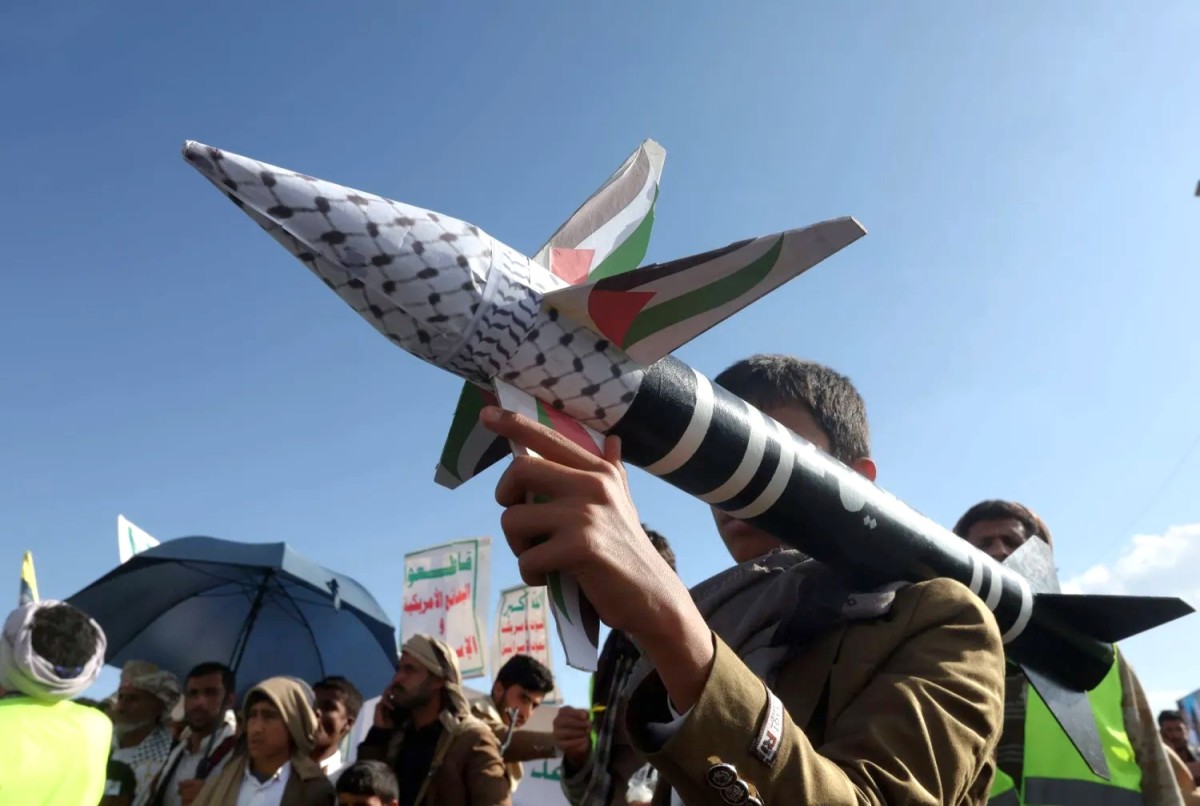Confusion in Israel... “Our raids stimulate the Houthis’ appetite for launching missiles”


Israel finds it difficult to define a policy that would lead to stopping the attacks carried out by the Houthis in Yemen against it with ballistic missiles and drones, despite the counterattacks it launched against them.
After avoiding attacking Yemen for several months at the beginning of the war, Israel carried out its first strike on Yemeni sites last July, then followed it with two additional attacks and is planning a fourth attack.
In recent months, the Houthis have focused their missile and drone attacks on the central region of Israel, especially Tel Aviv.
These attacks, especially those launched at night, cause widespread confusion for millions of Israelis, who are forced to run to shelters and safe rooms.
Sirens day and night
Military analyst at the Israeli Ynet news site, Ron Ben Yishai, points out that "the Houthis are not deterred despite the economic damage" as a result of the Israeli attacks.
He added, "Only a decisive strike on the Houthi leadership and their weapons, similar to Israel's strategy against Hezbollah, can change their position."
But the military analyst in the Israeli newspaper "Yedioth Ahronoth", Yossi Yehoshua, pointed out that the Houthis were not deterred by the Israeli attacks.
He said, "The air strikes in Yemen only encouraged the Houthis to continue the attack."
Yahoshua added, "The Houthis continue to entrench themselves as a major nuisance after the ceasefire in Lebanon and the dismantling of most of Hamas' capabilities in Gaza."
He continued, "In fact, the combination of missiles and drones on this front (Yemen) has created a reality that is evident in the activation of alarm systems day and night."
Based on military estimates in Israel, Yehoshua indicated that the third attack carried out by Israel on sites in Yemen on December 19 “did not deter the Houthis.”
He said, "The attack actually increased the Houthis' appetite to continue launching missiles."
He added, “In the field of drones, they even added an infiltration route to the route they had previously occupied, across the Mediterranean Sea and from there to the coast, to a route that crosses Sinai to the Gaza Strip and from there to the Western Negev” in southern Israel.
Therefore, Yehoshua pointed out that, “In the meantime, Israel is still discussing whether to attack Iran, as Mossad chief David Barnea suggests, or in Yemen, as the army believes.”
He said, "Barnea presented his proposal in the Israeli mini-ministerial council (cabinet) on the basis that this would deter the Houthis and exert pressure from Tehran on their branch in Yemen."
Yhoshua added, "But a senior official in the Israeli army claims, on the other hand, that the Iranians' influence on the Houthis is not the same as their influence on Hezbollah, and that they are a kind of independent and disturbed child. The attack will not achieve the goal of deterring the Houthis, and will renew a direct front against Iran." .
Israeli Defense Minister Yisrael Katz said on Tuesday, “We will not accept the Houthis continuing to fire on the State of Israel, and we will respond to the Houthi leaders in Sanaa and everywhere in Yemen.”